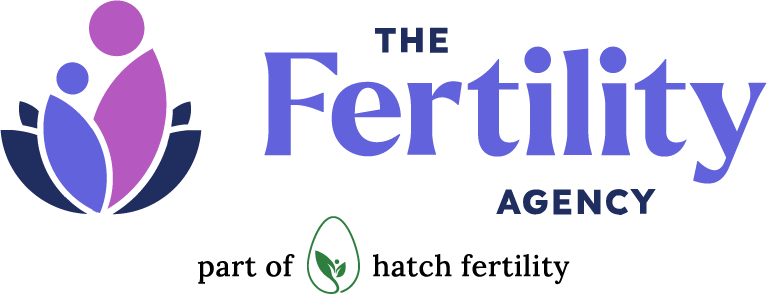INTRO
As with surrogacy, there are lots of myths floating around on the internet about egg donation, often due to the spreading of inaccurate information.
As an agency focused on surrogacy and egg donation, we find it essential to debunk these myths and provide accurate information.
MISCONCEPTIONS ABOUT EGG DONATION
MYTH #1: Agencies discriminate against women who weigh more.
While it is indeed a generous act to share one’s eggs with those in need, not all individuals are suitable candidates for egg donation due to various factors, and weight is one such consideration.
During an egg donor’s cycle, they undergo hormonal stimulation to facilitate the maturation of multiple eggs for retrieval. High body mass index (BMI) can impact the body’s absorption and utilization of these hormones, affecting the success of the egg retrieval process.
IVF clinics adhere to the guidelines set by the American Society of Reproductive Medicine (ASRM), which established criteria for accepting and approving potential egg donors. These criteria are designed to ensure the safety and effectiveness of the egg donation process for both donors and recipients.
While weight is one factor considered in the screening process, it is not the sole determinant. Egg donor agencies evaluate candidates based on a comprehensive set of criteria to identify suitable donors who can contribute to successful outcomes.
MYTH #2: Only young women can be egg donors.
Many IVF clinics prefer egg donors who are under the age of 30, as this is considered the prime fertility window for women. However, this preference is not absolute, and exceptions can be made based on individual circumstances.
For instance, if a woman has previously donated eggs and is slightly older than 30, many clinics and intended parents may still consider working with her, especially if she has a proven track record of successful donations.
Having an age requirement gives the intended parents who are spending a lot of money on this process the best chance to end up with a good number of healthy eggs from their egg donor’s retrieval.
This again is in adherence with the requirements and standards set by ASRM and fertility clinics.
MYTH #3: If I donate, I am using up my own fertility.
Not at all! Each month, the eggs a woman doesn’t use get absorbed into her body, never to be used again!! So she is not using up anything 🙂 This natural cycle of egg development and release occurs regardless of whether a woman chooses to donate her eggs or not.
Women are born with around 400,000 eggs and naturally, women lose around 1,000 immature eggs each month. This continuous process ensures that the body maintains a supply of eggs for potential fertilization. Pretty interesting, right?
According to Duke University, “The retrieval process simply takes advantage of the eggs that are not used during the month” and there is no decrease in an egg donor’s ability to have kids when and if she someday wants them.
MYTH #4: Only the smartest and most beautiful egg donors are chosen.
When looking for a life partner, people often assess that potential partner’s character and physical/personality traits in their choice (why else would we choose who we choose?). This is similar to selecting an egg donor. Some recipients may prioritize finding a donor who resembles them physically or would blend seamlessly into their family, while others may focus on personality traits or health considerations. The diversity of preferences means that donors of all appearances and body types are selected daily by intended parents.
Ultimately, the goal is to find an egg donor who aligns with the recipient’s preferences and priorities, creating the best possible match.
MYTH #5: Egg donors are being exploited.
We can only speak for our agency and the egg donors we work with – but we can say with 100% certainty, that our egg donors are well-informed about the process. We want to ensure we know what they are looking for from the experience. We strongly believe this needs to be a transparent process for everyone involved, and we strive to make sure all sides are well-informed and educated before choosing to move forward.
CONCLUSION
As noted, most common myths about egg donation are based on a need for more accurate information. It is important to do your research before believing the information you see online.
Egg donation is amazing.
The Fertility Agency team feels lucky to play a role in helping with this incredible process that helps to deliver dreams. <3
Think the only fertility myths are for egg donation? Nope. Keep an eye out for our upcoming blog, where we dive into debunking common misconceptions about surrogacy!

